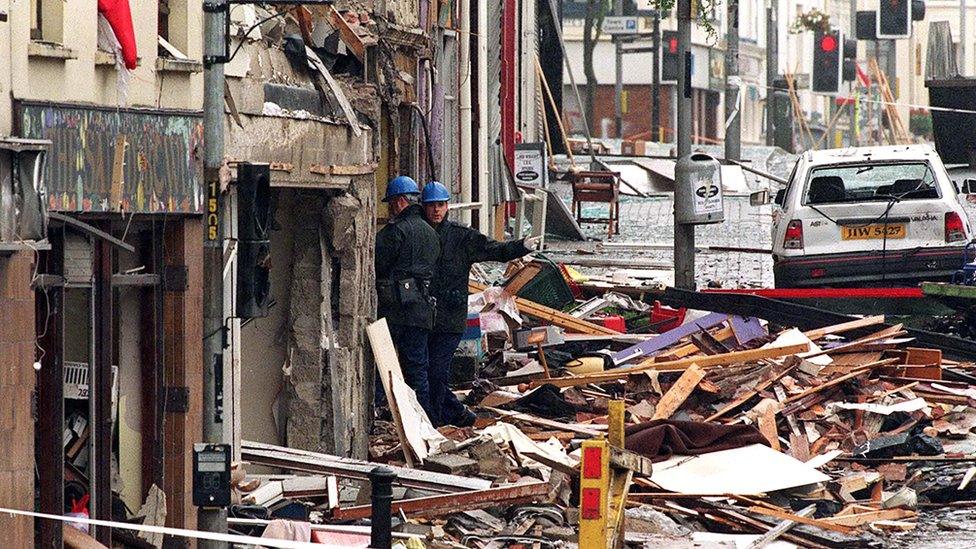Bell tolls to mark 20th anniversary of Omagh bomb
- Published
The BBC's Ireland correspondent Chris Page reports from a ceremony marking the 20th anniversary of the Omagh bombing
A memorial bell has tolled in Omagh to mark the 20th anniversary of the Real IRA car bomb that killed 29 people in the County Tyrone town.
The bell stopped ringing at 15:10 BST - the time of the explosion - and was followed by two minutes of silence.
A woman pregnant with twins was among the people killed in the dissident republican attack on 15 August 1998, external.
Former police ombudsman Baroness Nuala O'Loan said on Wednesday that the bomb could have been prevented.
The Omagh bombing: A timeline of events
It was the greatest single loss of life in the Troubles.
The bell was rung 32 times in memory of the victims - with the extra single peal for all who have lost their lives in atrocities around the world.
It is part of a public vigil being held at the bottom of Market Street in the town.
In the Republic of Ireland, President Michael D Higgins rang the peace bell at Áras an Uachtaráin - his official residence - in solidarity with the people of Omagh.
The bell was designed to mark the 10th anniversary of the Good Friday peace agreement.

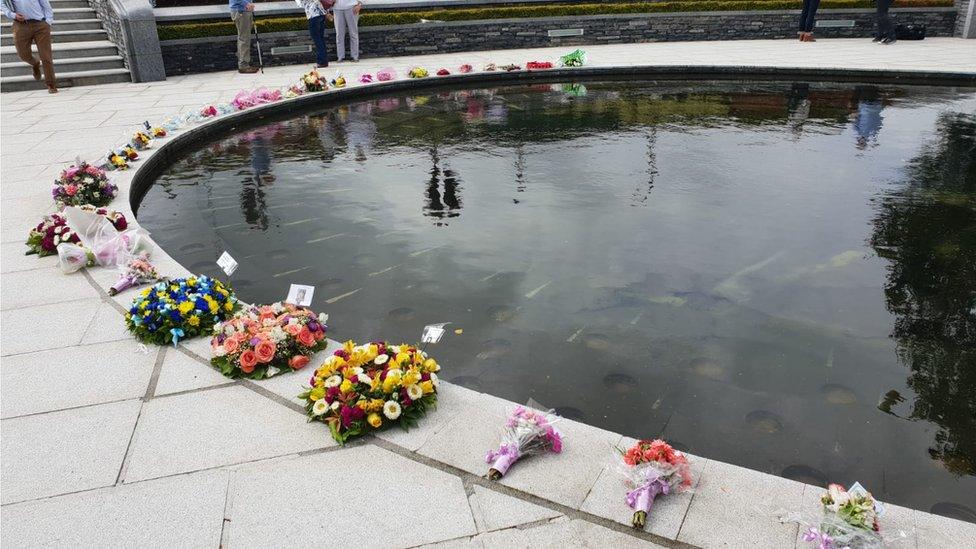
Floral tributes were placed in Omagh's memorial garden on the 20th anniversary of the bombing
A painful day: BBC News NI's Julian Fowler in Omagh
Omagh's Market Street was busy with shoppers as it was on this date 20 years ago.
Relatives who organised today's event said it is about remembrance, hope and moving forward, recognising the forgotten people of the Omagh bomb, such as the emergency services and the ordinary people who helped in the aftermath.
For some the anniversary is too painful to join the public commemoration - they will remember their loved ones in their own way.
On Wednesday morning one person came alone to lay a bunch of flowers at the memorial.
Others spent the afternoon at the gravesides of their loved ones.

Baroness O'Loan, who investigated the police's actions in the lead up to the bombing, external, claimed the Omagh bomb could have been prevented if the security forces had acted differently.
She said: "When I reported on Omagh I said we didn't know whether the bomb could have been prevented."
"It is now my very firm view that the bomb could have been prevented."
The chief constable of the Police Service of Northern Ireland (PSNI) rejected her claim and said her comments would further "traumatise" victims' families.
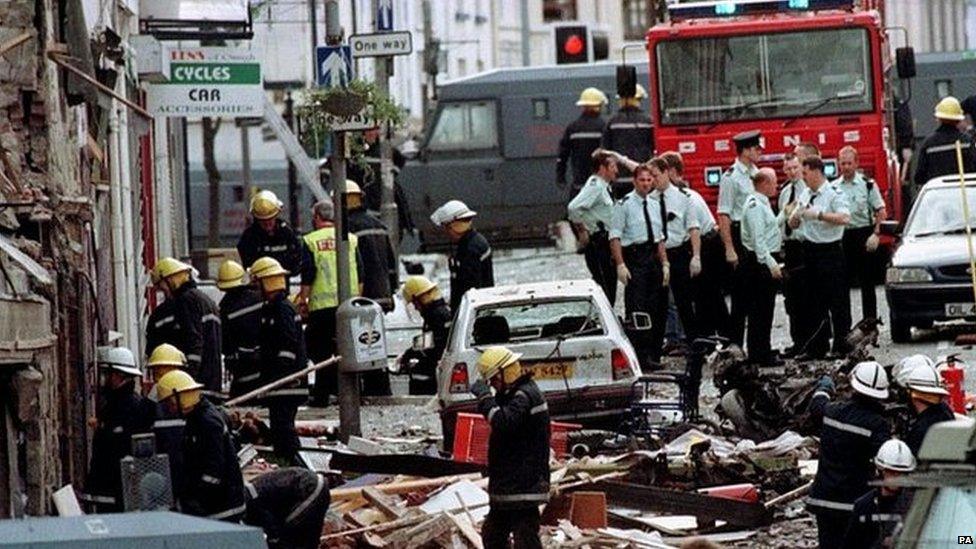
The bombing was carried out by the Real IRA just months after the Good Friday Agreement was signed
Baroness O'Loan said there was "sufficient intelligence to take action" and the "taking of that action could have prevented" the explosion.
"This wasn't just a random bomb - the police knew an awful lot about the activities of the IRA in this area," she added as she repeated her calls for a public inquiry into the atrocity.
She said the intelligence services were tracking the movements of the car containing the bomb from the Republic of Ireland.
PSNI Chief Constable George Hamilton said Baroness O'Loan had "changed her position on that without real explanation".
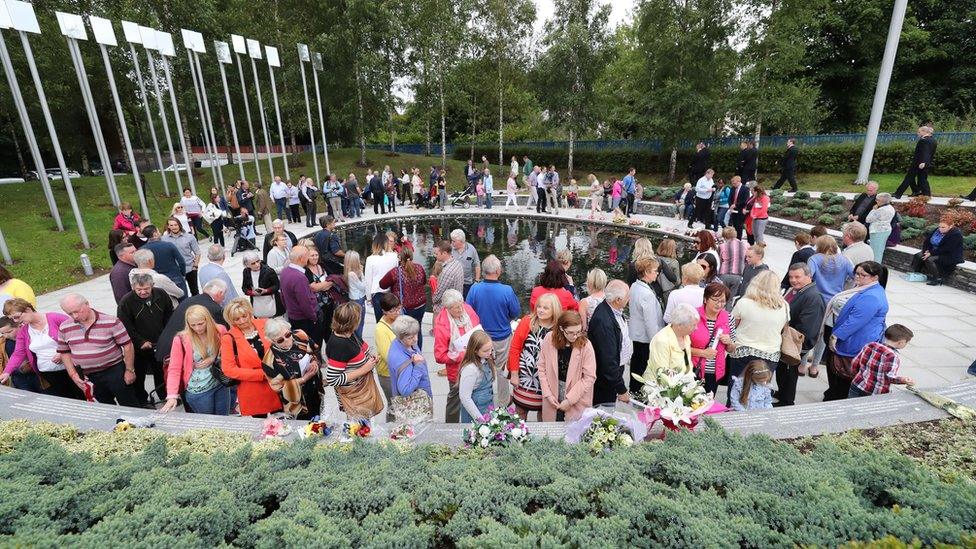
Hundreds of people gathered in Omagh to remember those who died in the explosion
"If it is factually true and can be proven to any standard of proof whatsoever, why did she not say it in 2001 when she published her report?" he said.
"When she had access to all the material she came to the conclusion that she could not know, based on all that information, if the bomb could have been prevented.
Kevin Skelton, whose wife Philomena died in the blast, said that Baroness O'Loan's comments did not "make any difference".
"Telling us now that the bomb could have been prevented is a bit late - it should have been prevented at the time," he said.
"It won't bring my wife back."
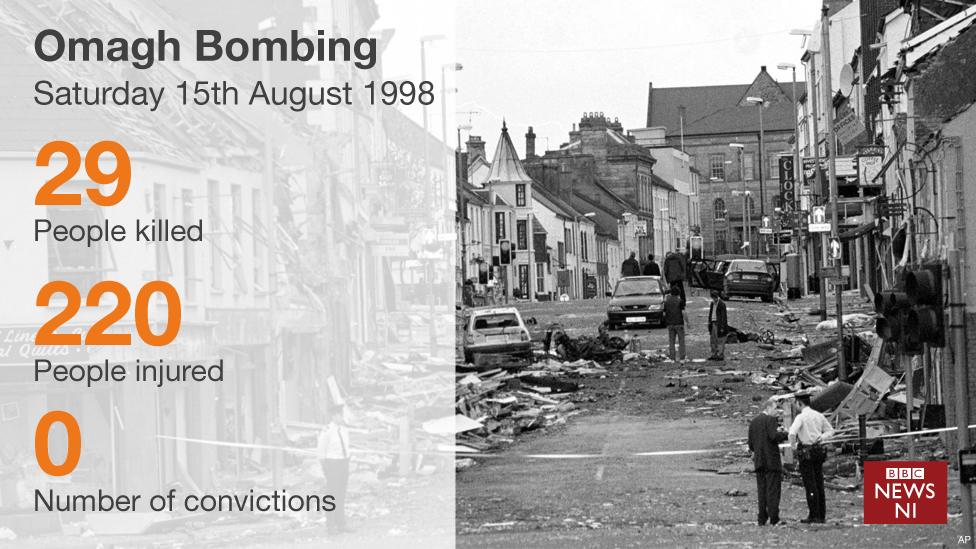
Alan McQuillan, a former senior police officer in Northern Ireland, said that dissident republican groups could still carry out an attack like the Omagh bomb.
"They have fractured, they have broken up... [but] they remain a continual potential threat and we've got to deal with that," he added.
The Omagh bombing was carried out by the dissident republican Real IRA, external several months after the signing of the Good Friday Agreement.
The bomb, which was packed with 225kg (496lb) of explosives, detonated in a car parked in the middle of the town's main street.

Background: The men behind the attack
Real IRA leader Michael McKevitt was responsible for the Omagh bomb, a High Court judge found in a civil case in 2009.
Liam Campbell, Colm Murphy and Seamus Daly were also found liable for the attack.
The four men were named by Mr Justice Morgan in a ruling made as part of a landmark case taken by some of the families of the victims.
The 12 relatives were awarded more than £1.6m in damages for the attack but to date nothing has been paid.

A warning had been called in 40 minutes earlier but the caller had said the car was at a different location.
The dead included three generations of one family.
No-one has been convicted over the bombing.
Omagh bomb: Community Youth Choir 20 years on
The bell-ringing event was part of a public vigil on Wednesday, which included the distribution of flower petals that people could place in the pond of a memorial garden created to remember the victims.
The vigil was organised by a groups including the Omagh Support and Self Help Group, Families Moving On and the Omagh Churches' Forum.
On Sunday, a cross-community service was held at the town's memorial gardens.
Victims and their families were remembered with prayers, music and speeches.
- Published12 August 2018
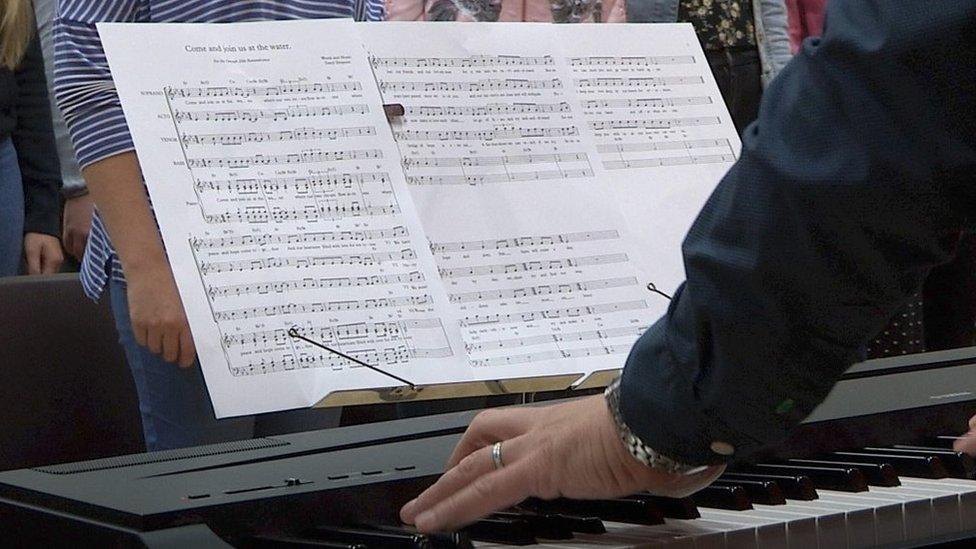
- Published28 January
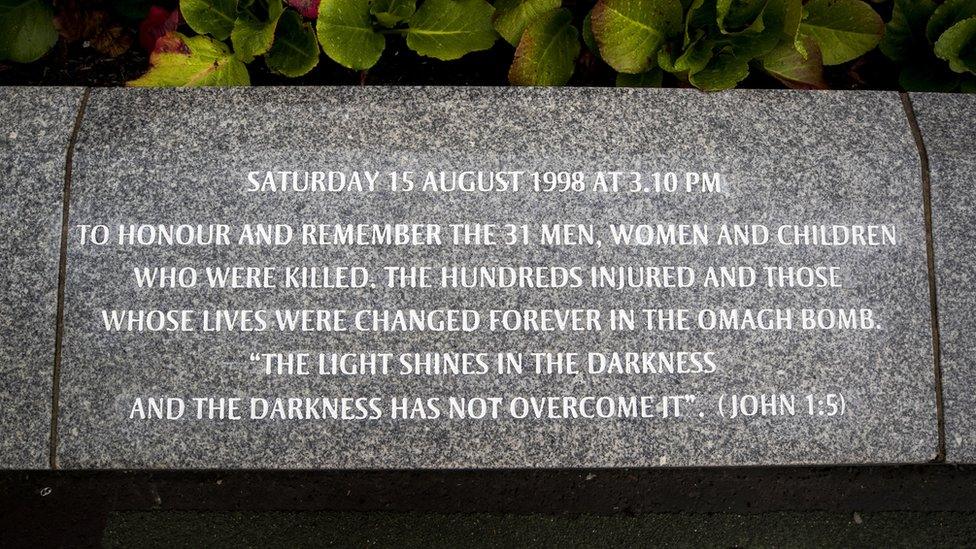
- Published28 January
